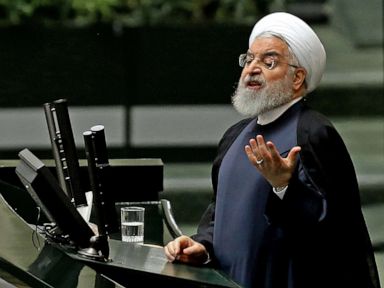
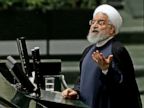

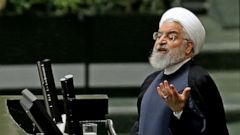
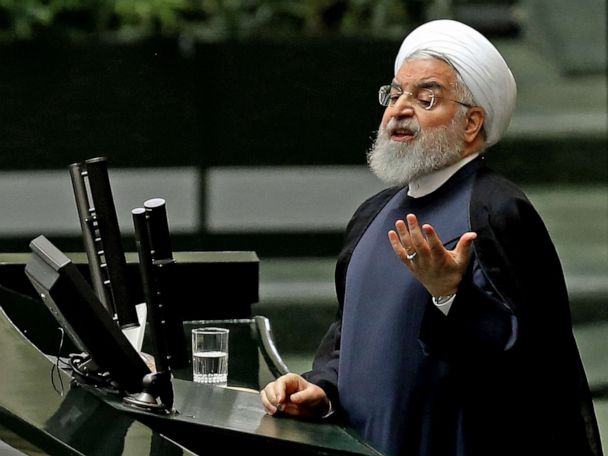
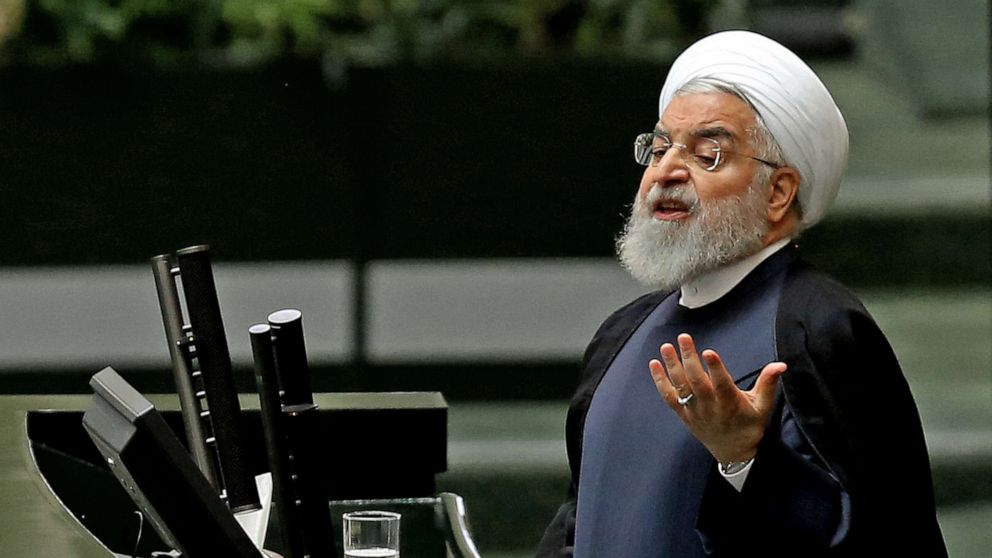

The Iranian government moved Friday to break another commitment it made under the nuclear deal as it struggles under U.S. economic sanctions reimposed after President Donald Trump withdrew from the historic accord.
The move, which sparked condemnation from the U.S. and concern from Europe, comes as the Trump administration is stepping up its pressure on Iran’s oil industry as a way to pin down the Iranian government, even taking the unusual move to offer a ship’s captain a multi-million dollar payout if he turned over his vessel carrying Iranian oil to U.S. authorities.
A diplomatic overture by France‘s President Emmanuel Macron also now seems dead, despite initial support from Trump, leaving heightened tensions between the U.S. and Iran that analysts worry could lead to skirmishes or wider conflict.
Iran is set to begin work on advanced centrifuges that will enrich uranium faster and to halt other caps on its nuclear research and development, according to state run news agency IRNA. Those breaches of its commitment under the nuclear deal follow two previous actions — stockpiling a greater amount of enriched uranium above 300 kilograms and enriching uranium above 3.67 percent — the limits set by the accord.
The advanced centrifuges would allow Iran to speed up enrichment, with Iranian officials floating the idea of enriching to 20 percent. That’s a small gap from the 90 percent needed to made nuclear weapons, although Iran says it is not interested in pursuing such weapons.
The government itself has yet to detail what the third breach will mean, but Iran’s atomic energy agency will announce more details on Saturday, according to the Associated Press. Iranian Foreign Minister Mohammad Javad Zarif defended the decision Friday as necessary to combat U.S. “economic terrorism.”
The deal, known formally as the Joint Comprehensive Plan of Action, or JCPOA, granted Iran sanctions relief and promised economic benefit in exchange for limits on its nuclear program and international inspections. But since Trump withdrew and reimposed sanctions at “maximum pressure,” especially targeting Iran’s critical oil industry, Iran began ending its commitments to pressure Europe to make up the difference financially.
Germany, France, and the United Kingdom — the remaining signatories to the deal, along with Russia and China — have worked with the European Union to create a financial mechanism that allowed transactions to bypass U.S. sanctions, but it’s not made up for the multiple businesses that have withdrawn from the country or the enormous drop in oil sales.
Secretary of State Mike Pompeo condemned Iran’s decision Friday, tweeting, “We are confident that the UK, France, and Germany – indeed, all civilized nations – will take decisive actions to stop Iran’s nuclear extortion.”
The European Union expressed “great concern [with] the announcement,” per spokesperson Maja Kocijancic, who urged “Iran to reverse all activities that are inconsistent with its commitments… [and] refrain from any further measures that undermine the preservation and full implementation of the nuclear deal,” according to the Associated Press.
Last week, the U.S. seemed to support a French-backed off-ramp to tensions that Macron presented to Trump at the G-7 summit. Macron’s proposition called for Iran to return to all of its commitments in exchange for a $15 billion line of credit to compensate Iran for the oil sales blocked by U.S. sanctions.
“We’re really talking about a letter of credit-type facility,” Trump said on August 26 in Biarritz, France. “We’re looking for no nuclear weapons, no ballistic missiles, and a longer period of time. Very simple.”
That seemed to counter what senior advisers like Pompeo and National Security Adviser John Bolton have said, laying out a long list of demands for Iran in any new deal with the U.S. That possibility seemed to fade this week, after U.S. special envoy for Iran Brian Hook said more sanctions would be coming and they “need to see some progress” on those demands first.
The final nail seemed to be hammered home in a phone call late Thursday between Trump and Macron, where Trump said “that dropping sanctions against Iran is not going to happen at this time,” according to a White House spokesperson.
Instead, the administration is turning to unusual moves to ratchet up the pressure on Iran, including direct outreach to ship captains and shipping companies, “warning them of the consequences of providing support” to Iran’s oil industry, a State Department spokesperson told ABC News.
In particular, the U.S. offered $5 million to the captain of the Adrian Darya 1, a oil tanker carrying Iranian crude that was detained by authorities in Gibraltar at the request of the U.S., before it was released on a judge’s order. The U.S. has tried to make an example of it by preventing it from offloading its oil in exchange for revenue that the U.S. says support Iran’s Revolutionary Guard Corps, an elite wing of its military the Trump administration designated a terrorist organization.
The ship’s captain turned down the reward, which was communicated directly to him by email and radio transmission, the spokesperson confirmed.

